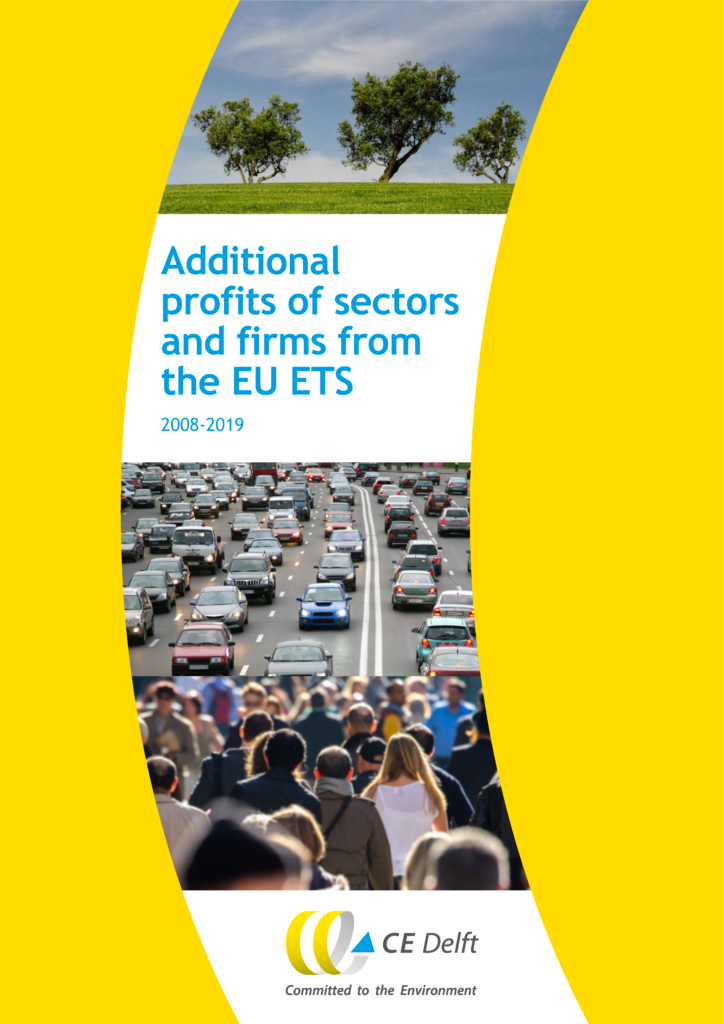Additional profits of sectors and firms from the EU ETS

- Title
- Additional profits of sectors and firms from the EU ETS
- Author(s)
- Sander de Bruyn, Daan Juijn, Ellen Schep
- Organisation
- CE Delft
- Year
- May 2021
- Type
- Report
- Length
- 76 p.
- Keywords
- Aviation, CBAM, Cement sector, Chemical sector, Free allowances, Industrial emissions, Steel sector
SUMMARY:
This study has calculated the additional profits that sectors and companies have made from the EU ETS between 2008 to 2019 for the fifteen most CO2-intensive sectors plus aviation in nineteen EU countries. In our study we have investigated three types of profits:
- Profits from overallocation of free emission allowances.
- Profits from using cheaper international offsets for compliance.
- Profits from passing through (part of) the opportunity costs of freely obtained allowances into product prices.
The conclusions of this research should read that free allocation may not be fit for purpose in the future of European climate policies. As the costs seem to be passed through, it results in additional profits at the expense of European consumers. At the same time, free allocation may not have shielded companies from losing market shares on EU and international markets. There is a chance that free allocation has merely resulted in windfall profits without effectively preventing losses in market share. This would cast doubt on the effectiveness of free allowances in reducing carbon leakage risks. We recommend that the effectiveness of free allocation to prevent carbon leakage is investigated in future research.
Making allocation more dynamic would solve part of these problems but comes at a cost. First, individual companies may no longer factor in carbon costs in their production decisions, resulting in overproduction. Second, a muted carbon price signal through the value chain will reduce consumer choices for low-carbon products (Neuhoff and Ritz, 2019). The most effective mean for reducing additional profits is to drastically reduce the number of freely issued allowances and increase the share of industrial emissions to be auctioned.










